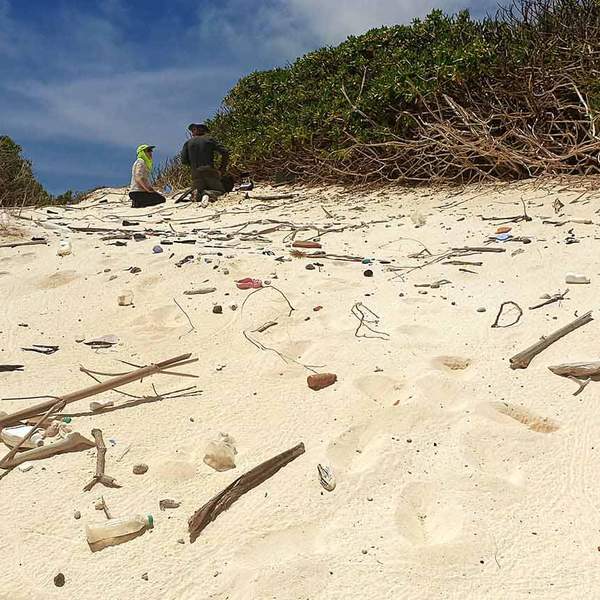102.7FM, 3RRR Digital in Melbourne
& worldwide via RRR Apps
Triple R — Melbourne Independent Radio
From an episode of Radio Marinara∙Presented by Bron Burton and Dr Beach
Interview
Radio Marinara: Dr Jenna Guffogg on Using Satellites to Detect Beach Plastics
Satellite technology is used to track the vast amounts of trash floating around our oceans, but hasn't previously been unable to identify plastic lying on shorelines where it can easily blend in with the sand. A team of researchers from RMIT University have found a way to develop satellite imagery technology to differentiate between how sand, water, and plastics reflect light – allowing beach plastics to be spotted 600km above the earth.
10 millions of tonnes of rubbish enter the world's oceans every year, and that figure is estimated to grow to 60 million by 2030. Plastic on beaches have severe impact on wildlife and their habitats, who often mistake them for food, or become entangled or trapped inside them. If plastics aren't removed, then they inevitably fragment further into micro and nanoplastics.
Earth observation data scientist and the study's lead author, Dr Jenna Guffogg, joins Bron and Dr Beach to talk about this groundbreaking new research and says that "everything on the surface of the planet has a unique fingerprint made of light", enabling these differentiation efforts.
Image credit: RMIT University
